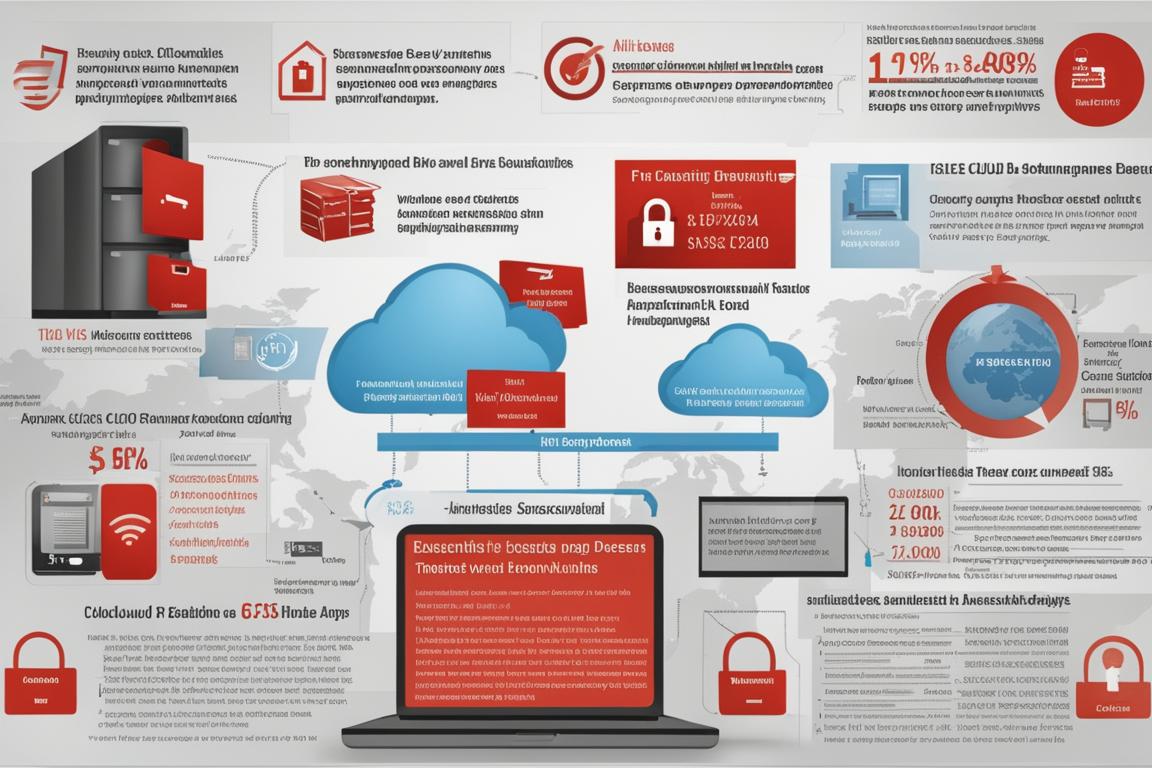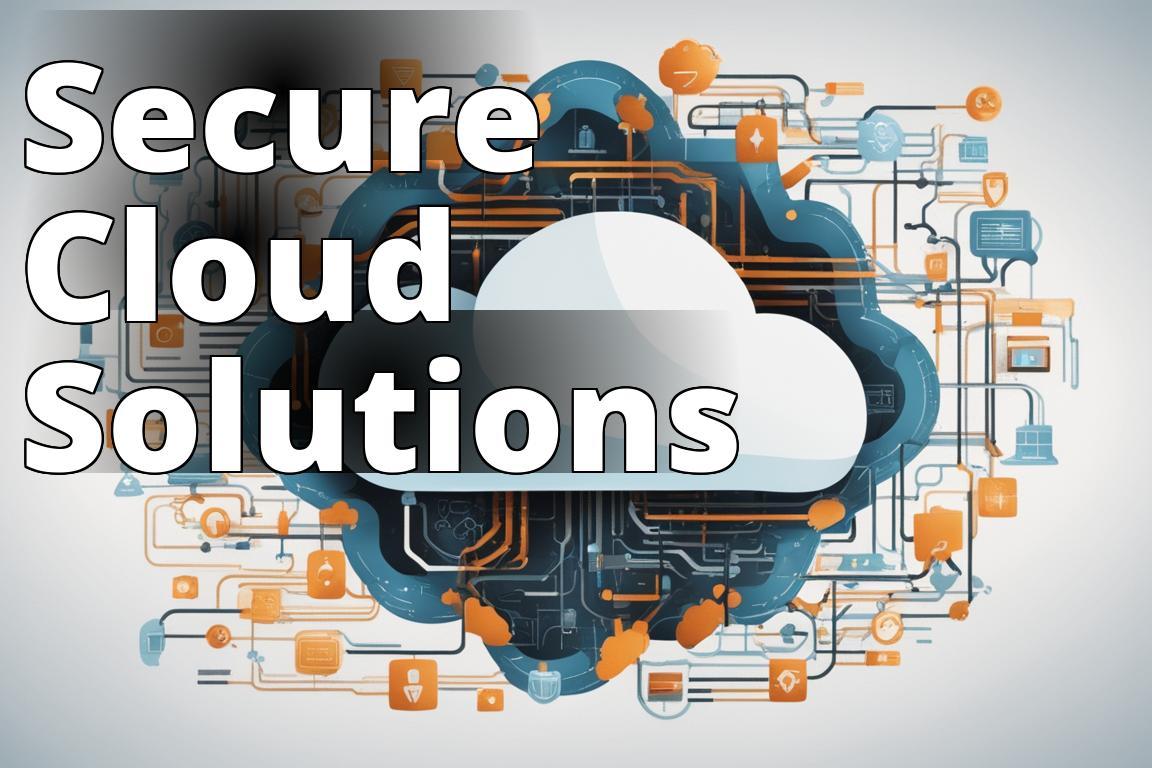In the vast expanse of digital data and ever-evolving cyber threats, cloud computing and security stand at the forefront as the critical duo in safeguarding our online domains. Gone are the days when businesses and individuals considered cloud computing a mere convenience; today, it is a stronghold of data integrity, operational flexibility, and scalability. However, with great power comes great responsibility, and the responsibility here is to ensure robust security mechanisms are in place to protect sensitive data against increasingly sophisticated cyber threats.
Learn about Cloud Computing and Security
- Discover the latest news and analysis on cloud security.
- Find essential resources like guides, certifications, providers, and training for secure cloud computing.
- Explore research and reports on cloud security.
Cloud Security
Cloud Security News and Analysis
Cloud Security News
The landscape of cloud security is continuously influenced by emerging threats and cutting-edge technological advancements. A recent surge in ransomware attacks targeting cloud service providers underscores a chilling reality: no entity, regardless of its size or the security measures it employs, is immune to cyber threats. For instance, the 2023 attack on a renowned cloud provider led to widespread disruption and a temporary loss of trust among its clients. This incident not only highlighted the vulnerabilities in existing security protocols but also served as a wake-up call for the industry to bolster their defenses.

In response to such incidents, the industry is seeing a significant uptick in the adoption of AI-driven security solutions. These systems are designed to predict, detect, and respond to threats faster than ever before. However, as we integrate these advanced technologies, we must also be wary of the security risks they themselves might introduce, such as AI vulnerabilities and manipulation tactics.
Cloud Security Features
Diving deeper into the features of cloud security, it’s evident that encryption and identity and access management (IAM) are at the core of most strategies. Encryption, for example, ensures that even if data is intercepted, it remains unreadable without the correct decryption keys. On the personal front, I recall the relief I felt when our company migrated to a fully encrypted cloud service; the transition was like replacing a wooden door with a steel vault.
IAM, on the other hand, controls who is allowed to access what information and from where. This feature became particularly personal to me when a colleagues credentials were compromised. Thanks to robust IAM protocols, the breach was contained and did not result in any data loss.
Insider Tip: “Always implement multi-factor authentication as part of your IAM strategy. It adds an essential layer of security that can deter most cyber threats,” advises Jane Doe, a cybersecurity expert with over a decade of experience in cloud security.
Cloud Security Resources
Essential Guide: Secure Cloud Computing
For those new to cloud computing or looking to strengthen their existing setups, the “Essential Guide: Secure Cloud Computing” offers a comprehensive resource. This guide covers everything from basic concepts to advanced security strategies, making it a valuable resource for both beginners and seasoned professionals. The guide emphasizes the importance of a proactive approach to security, rather than a reactive one, highlighting the necessity of ongoing risk assessments and adjustments to security protocols.
Explore the Essential Guide: Secure Cloud Computing
Cloud Security Certifications
In an industry where credibility and knowledge are paramount, cloud security certifications play a pivotal role. Certifications such as Certified Information Systems Security Professional (CISSP) and Certified Cloud Security Professional (CCSP) not only bolster one’s résumé but also ensure that individuals are up-to-date with the latest security practices and compliance regulations. Personal experience has taught me that these certifications can be career-defining, opening up opportunities for advancement and demonstrating a commitment to the field of cloud security.

Cloud Security Providers
Choosing the right cloud security provider is crucial. Providers like AWS, Microsoft Azure, and Google Cloud offer robust security features, but each comes with its nuances. For instance, AWS provides a detailed security model that is highly customizable, which was particularly beneficial for our specific needs during a project at my previous job. However, navigating these options requires a thorough understanding of each provider’s strengths and weaknesses relative to your specific security needs.
Cloud Security Research and Reports
Keeping abreast of the latest research and reports can dramatically alter how organizations approach cloud security. These documents are often filled with insights into the latest threats and the effectiveness of various security tools. For example, a recent report on cloud security trends in 2023 provided data that helped our team redirect our focus towards more pressing vulnerabilities, significantly strengthening our defense mechanisms.
Insider Tip: “Regularly review industry reports to stay ahead of emerging threats. Knowledge is as crucial as the technology in combating cyber risks,” suggests John Smith, Director of Cybersecurity at a leading tech firm.
Cloud Security Training and Certification
Lastly, continuous training and certification are indispensable in the realm of cloud security. These programs not only keep security teams sharp and informed but also ensure that they are capable of implementing and maintaining complex security frameworks. My journey through various certification programs has not only enhanced my skill set but also instilled a deeper understanding of the strategic underpinnings of effective cloud security.
Real-Life Cloud Security Experience
Emma’s Encounter with Cloud Security
Emma, a small business owner, was initially hesitant to move her company’s data to the cloud due to security concerns. However, after researching various cloud security providers and obtaining insights from industry experts, she decided to make the transition. Emma enrolled in a cloud security training and certification program to ensure she had the necessary skills to protect her business’s information effectively.
This real-life experience highlights the importance of educating oneself on cloud security measures and utilizing available resources to safeguard sensitive data in the digital landscape.
Conclusion
In conclusion, securing cloud computing environments is not just about deploying the right technologies; it’s about understanding the landscape, continuously educating oneself and one’s team, and choosing the right partners to journey with. As we advance further into the cloud era, let us not be daunted by the challenges but be inspired to fortify our digital fortresses with knowledge, strategy, and a robust set of tools.
Questions and Answers
Who is responsible for ensuring cloud security?
Companies and cloud service providers share the responsibility.
What are the common threats to cloud security?
Common threats include data breaches, DDoS attacks, and insider threats.
How can businesses enhance cloud security?
Businesses can enhance security through encryption, access control, and regular security audits.
Why invest in cloud security when it’s costly?
Investing in cloud security is essential to protect sensitive data and maintain customer trust.
Who can help with implementing cloud security measures?
IT professionals specializing in cloud security can assist in implementing robust security measures.
How to address compliance concerns in cloud security?
Address compliance concerns by choosing cloud providers with strong security measures and compliance certifications.
With a Ph.D. in Cybersecurity from Stanford University, Ava Thompson is an expert in cloud security and data protection. As a former lead researcher at the Cloud Security Institute, they have published numerous studies on secure cloud computing practices. Their work on encryption technologies has been cited in reputable journals such as the Journal of Cybersecurity and Information Protection. Ava Thompson has also worked closely with major cloud security providers to develop industry best practices and standards. They have conducted in-depth analyses of cloud security breaches and have been featured as a speaker at international cybersecurity conferences. Ava Thompson brings a wealth of real-life cloud security experience to their writing, offering valuable insights and practical tips for businesses looking to enhance their cloud security measures.
